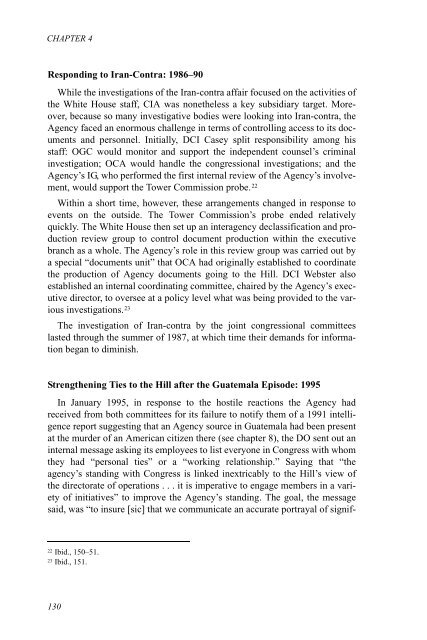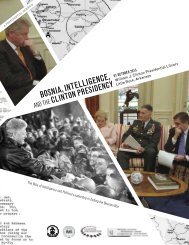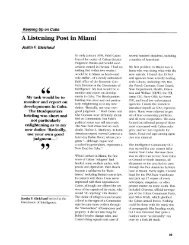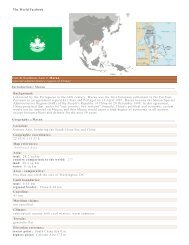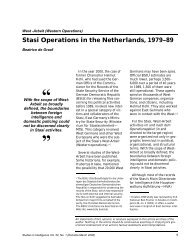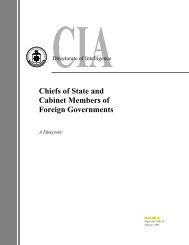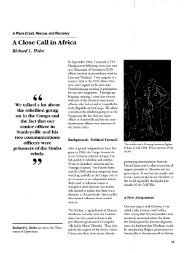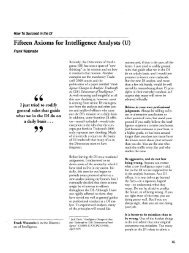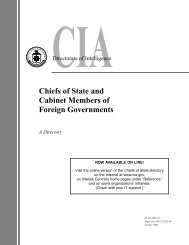CHAPTER 4 - Central Intelligence Agency
CHAPTER 4 - Central Intelligence Agency
CHAPTER 4 - Central Intelligence Agency
Create successful ePaper yourself
Turn your PDF publications into a flip-book with our unique Google optimized e-Paper software.
<strong>CHAPTER</strong> 4<br />
Responding to Iran-Contra: 1986–90<br />
While the investigations of the Iran-contra affair focused on the activities of<br />
the White House staff, CIA was nonetheless a key subsidiary target. Moreover,<br />
because so many investigative bodies were looking into Iran-contra, the<br />
<strong>Agency</strong> faced an enormous challenge in terms of controlling access to its documents<br />
and personnel. Initially, DCI Casey split responsibility among his<br />
staff: OGC would monitor and support the independent counsel’s criminal<br />
investigation; OCA would handle the congressional investigations; and the<br />
<strong>Agency</strong>’s IG, who performed the first internal review of the <strong>Agency</strong>’s involvement,<br />
would support the Tower Commission probe. 22<br />
Within a short time, however, these arrangements changed in response to<br />
events on the outside. The Tower Commission’s probe ended relatively<br />
quickly. The White House then set up an interagency declassification and production<br />
review group to control document production within the executive<br />
branch as a whole. The <strong>Agency</strong>’s role in this review group was carried out by<br />
a special “documents unit” that OCA had originally established to coordinate<br />
the production of <strong>Agency</strong> documents going to the Hill. DCI Webster also<br />
established an internal coordinating committee, chaired by the <strong>Agency</strong>’s executive<br />
director, to oversee at a policy level what was being provided to the various<br />
investigations. 23<br />
The investigation of Iran-contra by the joint congressional committees<br />
lasted through the summer of 1987, at which time their demands for information<br />
began to diminish.<br />
Strengthening Ties to the Hill after the Guatemala Episode: 1995<br />
In January 1995, in response to the hostile reactions the <strong>Agency</strong> had<br />
received from both committees for its failure to notify them of a 1991 intelligence<br />
report suggesting that an <strong>Agency</strong> source in Guatemala had been present<br />
at the murder of an American citizen there (see chapter 8), the DO sent out an<br />
internal message asking its employees to list everyone in Congress with whom<br />
they had “personal ties” or a “working relationship.” Saying that “the<br />
agency’s standing with Congress is linked inextricably to the Hill’s view of<br />
the directorate of operations . . . it is imperative to engage members in a variety<br />
of initiatives” to improve the <strong>Agency</strong>’s standing. The goal, the message<br />
said, was “to insure [sic] that we communicate an accurate portrayal of signif-<br />
22<br />
Ibid., 150–51.<br />
23<br />
Ibid., 151.<br />
130


